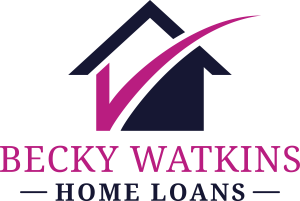
Bank Statement Loans
Qualifying for a home loan with freelance, contract, 1099, or self-employed income is simpler than you think. Many lenders have created loan programs just for these borrowers, opening the doors to more buyers finding their way into the homeownership arena.
Who Should Use a Bank Statement Loan?
Contract Workers
If your main source of income is tracked on a 1099, you can still qualify for a loan with a bank statement mortgage. A lender will review your past income through bank statements to evaluate your ability to pay back a loan.
Self Employed
For anyone that earns their money as a self-employed freelancer or gig worker, your mortgage options are probably wider than you think. We’ll review your past income to make a mortgage plan.
Small Business Owners
Owning a small business is challenging and rewarding, usually resulting in sporadic income. With the right loan program, you can strategize your income channels and optimize your mortgage choices.
Are you a first time home buyer? Read our list of Common Mistakes First-Time Buyers Should Be Aware Of When Financing Their First Home to ensure you understand the full scope of options and components of your mortgage plan.
What is a Bank Statement Loan?
Traditionally, securing a mortgage requires a significant amount of paperwork – pay stubs, W-2s, and tax returns.
But what if your income structure doesn't fit neatly into those categories? Freelancers, business owners, and investors often face hurdles proving their income through conventional means.
This is where bank statement loans (also known as stated income loans) come in – a mortgage option designed specifically for these situations. This innovative program allows you to leverage your bank statements as the primary verification of your income, bypassing the need for traditional documentation.
Instead of scrutinizing tax returns that might reflect deductions, lenders assess your recent bank statements. They analyze income deposits, business activity, and overall financial health to determine your true earning power and ability to repay the loan.
The benefits of bank statement loans are numerous. If your income fluctuates or you claim significant tax deductions, they provide a more accurate picture of your financial strength. They also streamline the application process by focusing on your real-time financial picture, eliminating the need for mountains of paperwork.
Ultimately, bank statement loans can unlock the door to homeownership, preventing unconventional income structures from holding you back. If you're a self-employed individual with a solid track record of income and a strong credit score, a bank statement loan might be the perfect solution for you. Contact us today to discuss your unique situation and explore if a bank statement loan can help you achieve your dream of homeownership.
Requirements To Qualify For A Bank Statement Loan
While traditional mortgages rely heavily on tax returns and W-2s, bank statement loans offer a more flexible path to homeownership. But what does it take to qualify for this innovative program? Let's break down the key requirements:
Financial Strength Through Bank Statements:
The cornerstone of a bank statement loan is, unsurprisingly, your bank statements. Lenders will typically request 12 to 24 months of consecutive statements to analyze your income flow, business activity, and overall financial health. This allows them to assess your true earning power and ability to manage a mortgage payment.
Minimum Credit Score:
While specific requirements vary by lender, a minimum credit score is essential. Bank statement loans often have a slightly higher credit score threshold compared to conventional loans, typically ranging from 640 to 680 or even higher. A strong credit history demonstrates responsible financial management.
Demonstrating Stable Income:
Consistent income deposits into your bank account are crucial. Lenders will look for a history of stable income over a specified period, usually reflected in your bank statements. This helps them gauge your income reliability and ability to consistently meet your mortgage obligations.
Self-Employed or Business Owner? No Problem:
Bank statement loans are a lifeline for self-employed individuals and business owners whose income streams might not fit traditional verification methods. Be prepared to provide documentation verifying your business ownership or self-employment status, such as business licenses, tax filings, or other relevant documents.
Down Payment and Reserves:
Bank statement loans often require a higher down payment than conventional loans, typically ranging from 10% to 20% of the home's purchase price. Some lenders may require even more. Additionally, having cash reserves in savings or other liquid accounts demonstrates financial stability and ensures you can cover unexpected expenses.
Debt-to-Income Ratio (DTI) in Check:
Even with more flexibility than traditional loans, bank statement lenders still consider your DTI ratio. This metric compares your monthly debt obligations to your gross monthly income. Generally, lenders prefer a DTI below 43%, but some may accept higher ratios depending on your overall financial picture.
Proof of Additional Assets:
While bank statements are the primary focus, some lenders might request documentation of other assets like retirement accounts, stocks, or investments. This provides a more comprehensive view of your overall financial well-being.
Beyond Bank Statements:
Qualifying for a bank statement loan goes beyond just the statements themselves. Meeting the lender's standard mortgage requirements, including minimum credit score, DTI ratio, down payment amount, and property value limitations, is essential. Additionally, escrowing certain home expenses, like property taxes and homeowner's insurance, might be a requirement for loan approval.
By understanding these requirements and ensuring your financial health aligns with them, you can unlock the door to homeownership with the help of a bank statement loan.
Pros and Cons To Using A Bank Statement Loan
Bank statement loans offer a unique path to homeownership, but are they the right fit for you? Let's explore the advantages and disadvantages to empower your decision-making.
Pros of using a Bank Statement Loan
Embrace Non-Traditional Income: Freelancers, business owners, and those with variable income can leverage bank statements to showcase their earning power, bypassing limitations of W-2s and tax returns.
Versatility Beyond Primary Residences: Bank statement loans open doors to financing not just primary homes, but also vacation properties and investment opportunities, fueling your real estate goals.
Accessibility for Lower Credit Scores: While minimum credit score requirements vary, some lenders consider bank statement loans for borrowers with scores as low as 620, offering a potential path to homeownership even with credit imperfections.
Potentially Higher Loan Limits: Depending on your financial picture, bank statement loans may allow access to higher loan amounts compared to conventional options.
Cons of using a Bank Statement Loan
Higher Interest Rates: As non-QM (non-qualified mortgage) loans, bank statement loans often come with higher interest rates compared to traditional options. This can translate to a higher monthly payment.
Limited Lender Availability: Not all lenders offer bank statement loans, but an experienced mortgage broker can help you find the right lender options.
Stricter Down Payment Requirements: Be prepared for a potentially higher down payment – typically 10% or more – compared to conventional loans. This can require more upfront capital.
Lengthier Closing Process: The verification process for bank statement loans can be more complex, potentially leading to a longer closing timeline compared to traditional mortgages.
Are Bank Statement Loans and Non-QM Loans Different?
In the world of mortgages, navigating different loan types can feel overwhelming. Enter bank statement loans and non-QM loans – terms you might encounter on your homeownership journey. But are they the same thing? Let's break it down.
The Non-QM Umbrella: A Broader Category
Non-QM stands for "non-qualified mortgage." This refers to any loan that doesn't meet the eligibility standards set by Fannie Mae and Freddie Mac, the government-backed institutions that buy a large portion of traditional mortgages.
These standards encompass factors like loan amount, debt-to-income ratio (DTI), and income verification methods. Non-QM loans offer more flexibility for borrowers who might not fit the traditional mold, such as self-employed individuals or those with recent credit blemishes.
Bank Statement Loans: A Niche Within Non-QM
Bank statement loans are a specific type of non-QM loan. They cater to borrowers whose income might not be easily documented with W-2s and tax returns, such as freelancers or business owners. Instead, these loans rely on bank statements to verify income and assess your ability to repay the mortgage.
Key Differences to Consider:
Documentation: Bank statement loans are all about your bank statements, while non-QM loans can encompass a wider range of alternative documentation options depending on the specific loan type.
Availability: Not all lenders offer bank statement loans, whereas you might find a wider variety of non-QM loan options from different lenders.
In essence, all bank statement loans are non-QM loans, but not all non-QM loans are bank statement loans. Non-QM represents a broader category with more flexibility, while bank statement loans cater to a specific niche within that category. A type of non-QM loan that many borrowers aren’t aware of is the Asset Depletion Loan. This loan allows the borrower to qualify for a home purchase with assets like stocks, bonds, IRAs, and other cash reserves.
The Takeaway:
Understanding the distinction between bank statement loans and non-QM loans helps you navigate your homeownership options. If you have non-traditional income and require flexibility in income verification, a bank statement loan might be a good fit. However, non-QM loans can encompass a wider range of options, so exploring all possibilities with a qualified mortgage professional is recommended. Working with an experienced mortgage broker will help you navigate this choice.
Do you have alternative assets? You could qualify for an asset depletion loan.
Learn more about how you can leverage existing accounts and investments. Check with Beck about making your next mortgage move with an asset depletion loan.
What Bank Statements are Needed To Apply?
Securing a mortgage involves submitting various documents, and bank statements are a crucial piece of the puzzle. Let's dive into the nitty-gritty of what bank statements are, why lenders need them, and what they're looking for to help you navigate the home buying process smoothly.
What are Bank Statements?
Bank statements are monthly or quarterly reports summarizing your banking activity. These can be delivered electronically, through the mail, or both. They typically include:
Account Balances: A snapshot of how much money you have in your checking and savings accounts.
Transactions: A detailed listing of deposits (money coming into your account) and withdrawals (money going out). Deposits can include paychecks, direct deposits, and interest earned. Withdrawals encompass purchases, ATM transactions, and transfers.
Why Do Lenders Need Bank Statements?
Mortgage lenders wear several hats during the loan application process. One of their key roles is to verify your ability to repay the loan. Bank statements provide valuable insights into your financial health:
Income Verification: For traditional employees with W-2s, paystubs usually suffice. However, for self-employed individuals or those with alternative income streams, bank statements become essential for income verification.
Financial Stability: Lenders want to see consistent income patterns and sufficient reserves to cover a down payment, closing costs, and unexpected expenses. Your bank statements showcase your ability to manage your finances responsibly.
Down Payment and Closing Costs: Bank statements confirm you have the necessary funds readily available to cover the down payment and closing costs associated with your home purchase.
What Do Lenders Look for in Bank Statements?
Underwriters, the individuals who assess your loan application, will meticulously review your bank statements. Here are some key areas of focus:
Income Consistency: Lenders seek a steady flow of income to ensure you can consistently make your mortgage payments. Regular deposits from reliable sources are a positive sign.
Debt Management: Your bank statements reveal your existing debt obligations. Lenders want to see responsible debt management and a healthy debt-to-income ratio (DTI).
Reserve Funds: Having a cushion of savings demonstrates your ability to weather financial setbacks without jeopardizing your mortgage payments.
Large Deposits: Sudden influxes of cash can raise red flags. If you have a large deposit, be prepared to explain its source with documentation like a gift letter.
Spending Habits: Underwriters will analyze your spending patterns to assess your financial discipline. Excessive or unexplained withdrawals could be a concern.
How Many Bank Statements Do I Need?
Typically, lenders request 2 months' worth of bank statements. This timeframe provides a clear picture of your recent financial situation. However, self-employed individuals may need to submit a longer period (up to 12 months) to establish a more comprehensive income history.
Finding Your Bank Statements
Accessing your bank statements is a breeze! Most banks offer convenient online access through their websites or mobile apps. Simply log in and follow the instructions to download or print your statements.
Let’s talk about your Bank Statement Loan Options
becky.nexalo@gmail.com
Call or Text: 505-235-9810
Looking for other loan options?
Conventional Loans
Discover the advantages of conventional home loans, which are perfect for buyers with strong credit and financial stability. With the potential for no upfront mortgage insurance and favorable rates, these loans offer a traditional path to homeownership, requiring as little as 3% down for first-timers.
HELOC Loans
Leverage the equity in your home with a Home Equity Line of Credit. This flexible financial tool gives you a revolving credit line to fund major expenses or ongoing needs. You'll have the freedom to borrow up to a set limit, pay interest only on the amount used, and manage variable interest rates throughout the loan's life.
VA Home Loans
Recognizing the sacrifices of military personnel, VA mortgages offer an exclusive pathway to homeownership with no down payment, competitive rates, and no private mortgage insurance. These loans, guaranteed by the Department of Veterans Affairs, are a top benefit for veterans, active duty members, and certain other groups, enabling them to finance 100% of their home purchase.
Jumbo Loans
Jumbo loans are specialized mortgages for properties priced above the regular Conventional loan limits, typically needed for homes valued at $750,000 or more. Requiring higher credit scores and substantial financial strength, these loans start with down payments of at least 10.1%. They provide the means to purchase luxury homes without PMI with a 20% down payment and come with adjustable or fixed-rate options.
Reverse Mortgage
Unlock the potential of your home equity with a reverse mortgage. This option is for homeowners 62 and older, offering a reverse flow of payments from the lender to the borrower, no monthly repayments, and tax-free income. It's a way to enjoy your retirement in the comfort of your home, with extra funds for your needs.
DSCR Loans
Designed for real estate investors, DSCR loans prioritize a property's ability to generate income over the borrower's income documentation. By evaluating the Debt Service Coverage Ratio, lenders ensure the rental income can sustain the loan payments. These loans typically demand higher credit scores, substantial down payments of 15% or more, and offer the advantage of no income verification, making it quicker for investors to expand their portfolios.
Feel Informed and Confident In Your Mortgage Decision
Get the information you need to feel happy with your mortgage choices. Find details about loan programs, qualifications, documents, strategies and more on our Mortgage Broker Blog.












